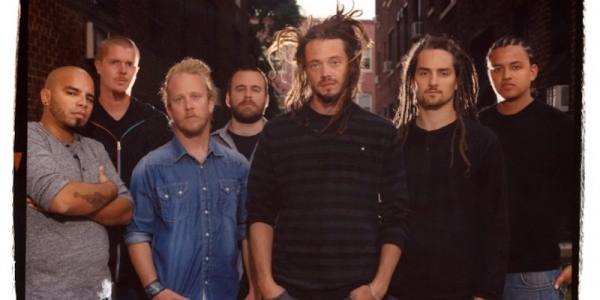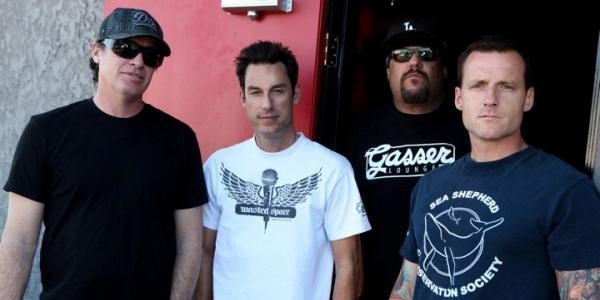“We’ll hit Brazil sometimes, go over to Argentina then Hawaii then head over to Europe, so the actual flight doesn’t bother me,” he says. “Everyone in an airport has somewhere else they’d rather be. It reminds me a lot of a hospital actually.”
Hemphill bears an unabashedly honest approach, one that is evident not only in SOJA, the socially conscious eight-piece reggae act he fronts, but also in the manner he answers questions regarding his band. His honesty, so refreshing at times that you can’t help wondering if it’s an act, seemingly knows no bounds. The idea of artistic inspiration may be one thing, but full on imitation is another level of adoration altogether. But when Hemphill presents a timeline on when his music became socially conscious, he doesn’t hold back.
“I think when I heard Bob Marley,” he says of when his music became socially conscious. “I grew up in Africa, and knew that I wanted to be a musician, I just didn’t know what kind of musician. And when I heard Bob Marley it just reminded me of where I grew up. He kept saying his music was a mission, not a competition. He wasn’t in it for ratings, he was in it to change the world. That always stuck with me. I kind of just decided that I wanted to be him, if I’m being honest,” he says.
While our interview moves from touring with Dave Matthews Band to the banality of posing for photos with fans, Hemphill seemed particularly intent on discussing his band’s place in the reggae world. Often believed to be one of the more limiting genres in terms of pop music, Hemphill can’t help but agree and disagree all the same. In doing so, Hemphill showcases a different way of thinking about the man many believe is responsible for the rise of reggae.
“The reason reggae is limiting is Bob Marley. Though it’s also the reason it exists,” says Hemphill. “He’s the biggest fish in the smallest pond that ever existed. He could’ve been the biggest rockstar in the world. It makes reggae musicians have to follow him.
“But reggae musicians believe they have to say the things he said, believe what he believed and portray themselves the way he portrayed himself,” he continues. “It’s as if in hip hop, Biggie Smalls died but then there was no Jay-Z, Eminem, that sort of thing. But reggae was such a small genre, they didn’t have another Bob Marley. He’s just too big. It just forces people out of reggae.”
One of the more vocal and socially conscious singers in a genre that’s chock-full of them, SOJA’s newest full-length, Strength To Survive showcases their ability to do just that. There’s a very clear message on the record, one of unity with every person on earth. Hemphill cracks wise throughout our interview, refraining at times from taking his voice too seriously. Or at the very least, he understands that Soja’s message shouldn’t be put on a pedestal. He recognises that certain artists take the responsibility of speaking out against certain social issues much too far.
“You definitely don’t want to exploit anybody. You don’t want to say ‘I’m right and you’re wrong.’ My stuff if more about questions. I don’t have all the answers, but I do believe I have the strength to survive, and I ask people within my songs if they too have the strength to survive.”
Hemphill’s honesty knows no boundaries, and if he continues this approach, it’s doubtful the music of SOJA will either. “I never tell people the right way to live, which hairstyle will get you into heaven or which shoes will help you live an extra ten years. And that’s what a lot of people do, they become very self-righteous. All I’m asking people to do is look inside themselves and I tell people that they might be surprised if they look inside and find that they’re being very honest with themselves.
BY JOSHUA KLOKE

